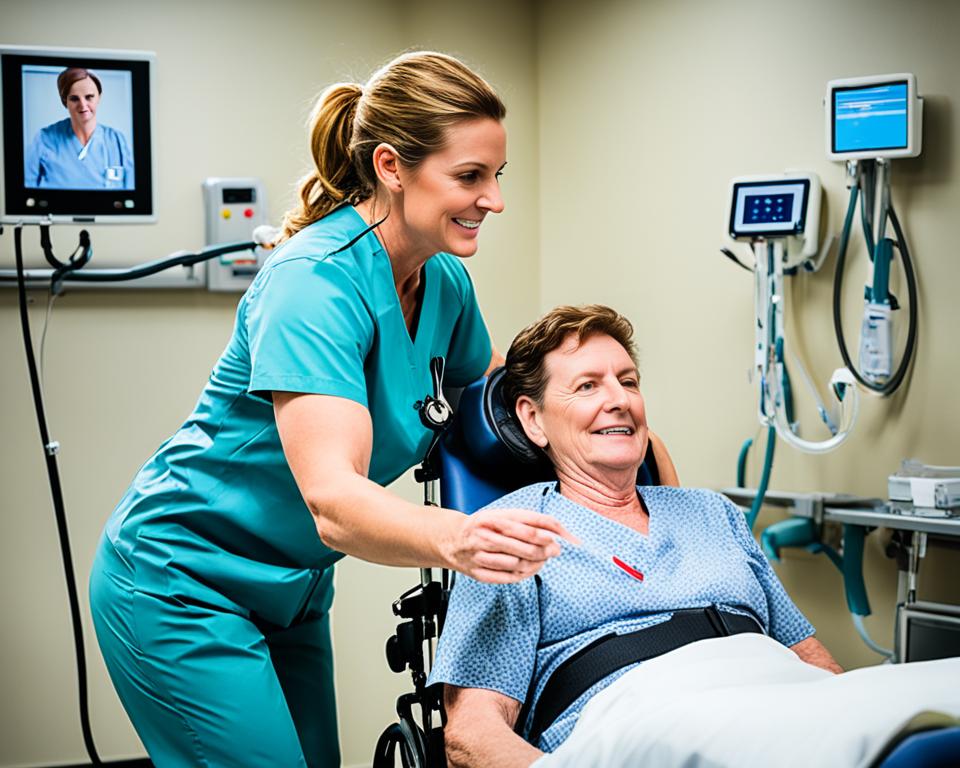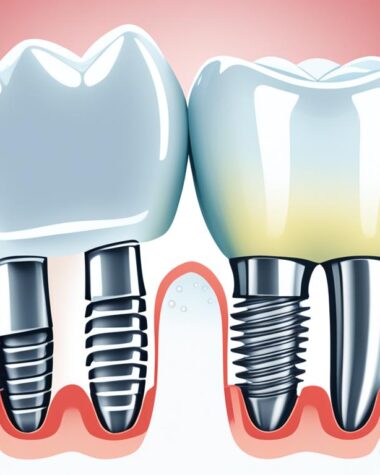Are you considering a career in nursing? From the different types of nursing courses to the best nursing certifications, there are numerous options to explore and choose from. Before you embark on your journey to becoming a nurse, it’s essential to understand the various nursing degree programs available and what they entail.
Nursing Fundamentals
Nursing fundamentals is a core course in any nursing program that provides students with the essential knowledge and skills needed for patient care. This foundational course covers the basics of patient care, including the importance of effective communication, vital signs monitoring, hygiene practices, and infection control.
Effective communication is crucial for establishing rapport with patients and their families. Nurses learn strategies for active listening, empathy, and clear communication techniques to ensure effective healthcare delivery. By developing strong communication skills, nurses can better understand patients’ needs, address their concerns, and provide appropriate care.
In addition to communication skills, nursing fundamentals also focuses on teaching students how to monitor vital signs accurately. Students learn to measure and interpret vital signs such as blood pressure, heart rate, respiratory rate, and temperature. These measurements help nurses assess a patient’s overall health status, detect any abnormalities, and make timely interventions.
Hygiene practices are another vital aspect of nursing fundamentals. Students learn proper techniques for maintaining cleanliness and preventing the spread of infections in healthcare settings. This includes hand hygiene, sterilization of equipment, and adherence to infection control protocols. By understanding and implementing these practices, nurses play a critical role in ensuring patient safety and preventing the spread of healthcare-associated infections.
Nursing fundamentals also introduces students to the different nursing roles and potential career paths in nursing. This course helps students explore various nursing specialties and gain insight into the diverse opportunities available in the field. By understanding the different roles and responsibilities, students can make informed decisions about their future career paths in nursing.
Benefits of Nursing Fundamentals
- Establishes a solid foundation in patient care
- Enhances communication skills
- Develops proficiency in monitoring vital signs
- Promotes proper hygiene practices
- Explores nursing career options and potential specialties
| Module | Topics Covered |
|---|---|
| 1 | Introduction to nursing profession |
| 2 | Effective communication in healthcare |
| 3 | Principles of vital signs monitoring |
| 4 | Hygiene practices and infection control |
| 5 | Exploring nursing specialties |
Physiology
In a nursing course, understanding the physiology of the human body is crucial. Physiology is the study of the body’s functions and how its different parts work together to maintain homeostasis. By gaining knowledge in physiology, nursing students develop a deep understanding of the intricate mechanisms that make our bodies function.
During their physiology coursework, students study various body systems such as the cardiovascular, respiratory, and musculoskeletal systems. They learn about the structure and function of organs, tissues, and cells. This knowledge enables them to identify abnormalities and understand how different diseases impact the body.
Additionally, safe patient handling techniques are an integral part of physiology training. Nurses must be able to lift and move patients without causing harm or discomfort. Proper body mechanics and ergonomics are taught to prevent injuries for both the patient and the caregiver.
This image visually represents the importance of safe patient handling, a key aspect covered in physiology courses. By implementing appropriate lifting and transferring techniques, nurses can ensure the safety and well-being of their patients.
The Role of Physiology in Nursing
Understanding physiology is vital for nurses as it allows them to assess patients accurately and provide appropriate care. By comprehending how each body system functions, nurses can identify potential complications and intervene early, promoting better patient outcomes.
Here are some key aspects that nurses learn in their physiology training:
- Identification and interpretation of vital signs
- Differentiation between normal and abnormal physiological responses
- Understanding the effects of medication on the body
- Recognizing signs and symptoms of various medical conditions
- Applying physiological knowledge in clinical reasoning and decision-making
By integrating their understanding of physiology into their nursing practice, nurses can provide holistic care that addresses both the physical and psychological needs of their patients.
| Body System | Main Functions |
|---|---|
| Cardiovascular System | Transportation of oxygen, nutrients, and waste products |
| Respiratory System | Gaseous exchange and oxygenation of the blood |
| Musculoskeletal System | Movement, support, and protection of the body |
| Nervous System | Control and coordination of body functions |
| Endocrine System | Regulation of hormones and metabolism |
By studying the physiology of these body systems, nurses gain a comprehensive understanding of the human body and how it functions as a whole.
Introduction to Psychology
An introduction to psychology course is a prerequisite for many nursing programs. It provides a foundational understanding of psychological principles and practices that are essential for nurses to effectively care for their patients and communicate with them. This course covers a wide range of topics, including cognition, personality, and the psychology of illness.
One of the main focuses of this course is cognition, which refers to the mental processes involved in acquiring, interpreting, and using information. Nurses learn how cognitive processes, such as perception, memory, and reasoning, influence patient care and decision-making. By understanding cognition, nurses can better anticipate and meet the needs of their patients, ensuring optimal care.
The course also delves into the study of personality, which is the unique pattern of thoughts, feelings, and behaviors that distinguishes individuals from one another. Understanding personality helps nurses develop effective communication strategies and tailor their care to meet the specific needs and preferences of each patient. By recognizing different personality traits, nurses can provide empathetic and personalized care, promoting patient satisfaction and well-being.
“Understanding psychology helps nurses communicate better with patients, understand their behavior, and make informed decisions in the care they provide.”
In addition, the psychology of illness is explored in this course, focusing on the psychological factors that influence health and well-being. Nurses learn about the impact of stress, coping mechanisms, and social support on the development and management of illness. This knowledge equips nurses to provide holistic care that addresses not only the physical, but also the psychological needs of their patients.
Applied psychology is another important aspect of the course, where nurses learn how to apply psychological principles in their practice. This includes utilizing effective communication techniques, understanding patient motivations and behaviors, and promoting positive health behaviors. By applying psychology, nurses can foster therapeutic relationships, encourage patient engagement, and contribute to better health outcomes.
| Key Topics Covered in Introduction to Psychology |
|---|
| Cognition |
| Personality |
| Psychology of Illness |
| Applied Psychology |
Microbiology
In our nursing curriculum, one of the essential courses is Microbiology. This field of study focuses on the fascinating world of microorganisms, including viruses, bacteria, and fungi. By delving into microbiology, we gain a deeper understanding of how these tiny organisms interact with the human body and their crucial role in disease prevention and infection control.
Throughout this course, we explore various types of microorganisms, their functions, and their impact on our health. Understanding their characteristics and behaviors enables us to identify potential risks and devise effective strategies for combating infections.
The Importance of Microbiology in Nursing
“Microbiology is like a window into a microscopic world, allowing us to comprehend the invisible forces that shape our health.” – Unknown
As future healthcare professionals, it is imperative for us to grasp the fundamental concepts of microbiology. By doing so, we acquire the knowledge and skills necessary to prevent the spread of infectious diseases and maintain optimal patient care.
Microbiology equips us with essential insights into the following areas:
- Identification and classification of microorganisms: We learn to differentiate between various types of microorganisms, such as bacteria, viruses, and fungi. This knowledge enables us to identify pathogens and devise appropriate treatment plans.
- Infection control and prevention: We understand the modes of transmission and the routes through which microorganisms can enter the body. Armed with this knowledge, we are better equipped to implement infection control measures and prevent the spread of infections within healthcare settings.
- Antibiotic resistance: Microbiology sheds light on the issue of antibiotic resistance, an emerging global health concern. By learning about different mechanisms and factors contributing to antibiotic resistance, we can play a pivotal role in promoting responsible antibiotic usage and combating this growing threat.
Microbiology is not only a theoretical discipline, but it also offers practical applications that directly impact our nursing practice. Through hands-on laboratory experiences, we learn proper techniques for handling and culturing microorganisms. This practical experience enhances our understanding and equips us with the skills needed to perform microbiological tests, interpret results, and make informed decisions in patient care.
By becoming proficient in microbiology, we become advocates for disease prevention, infection control, and the overall well-being of our patients. The knowledge and skills gained in this course empower us to make a positive impact on the health outcomes of the individuals we serve.
Gerontology
Gerontology is a fascinating field of study that focuses on the aging process and the unique care needs of older adults. As a nursing student, taking a gerontology course equips me with the knowledge and skills required to provide specialized care to this growing population.
This comprehensive course covers various aspects of gerontology, including the common health conditions associated with aging. I learn about the physical, mental, and emotional changes that occur as individuals age, allowing me to better understand and address the specific needs of older adults.
Communication plays a crucial role in caring for older adults, and the gerontology course emphasizes effective communication strategies. I learn how to establish rapport, actively listen, and provide compassionate care to promote trust and comfort among older adults in my care.
Finally, the gerontology course addresses important end-of-life concerns. It equips me with the knowledge and resources necessary to support patients and their families during this sensitive time. Understanding the physical, emotional, and spiritual aspects of end-of-life care empowers me to provide comprehensive support and ensure dignity for older adults.
FAQ
What are some types of nursing courses available?
Nursing courses cover a wide range of subjects, including nursing fundamentals, physiology, psychology, microbiology, and gerontology.
What does the nursing fundamentals course cover?
The nursing fundamentals course provides an overview of the nursing profession, covering topics such as patient care basics, communication skills, vital signs monitoring, hygiene practices, and infection control.
What is covered in the physiology course?
In the physiology course, students learn about the human body and its functions, including the names and functions of different body parts. They also learn safe patient handling techniques and how to lift and move patients without causing injury.
What does the introduction to psychology course entail?
The introduction to psychology course is a prerequisite for many nursing programs. It covers principles and practices of psychology, including cognition, personality, and the psychology of illness. Nursing students learn how to apply psychology in their practice as a nurse and as a communicator.
Why is microbiology important for nursing students?
Microbiology is important for nursing students as it helps them understand how microorganisms interact with the human body and their role in disease prevention and infection control. Students learn about different types of microorganisms, their functions, and how to prevent the spread of infections.
What is gerontology and why do nursing students study it?
Gerontology is the study of aging, and nursing students take this course to gain knowledge and skills in caring for older adults. The course covers topics such as common health conditions associated with aging, communication with older adults, and end-of-life concerns. It prepares nurses to provide effective care to the growing population of older adults.










